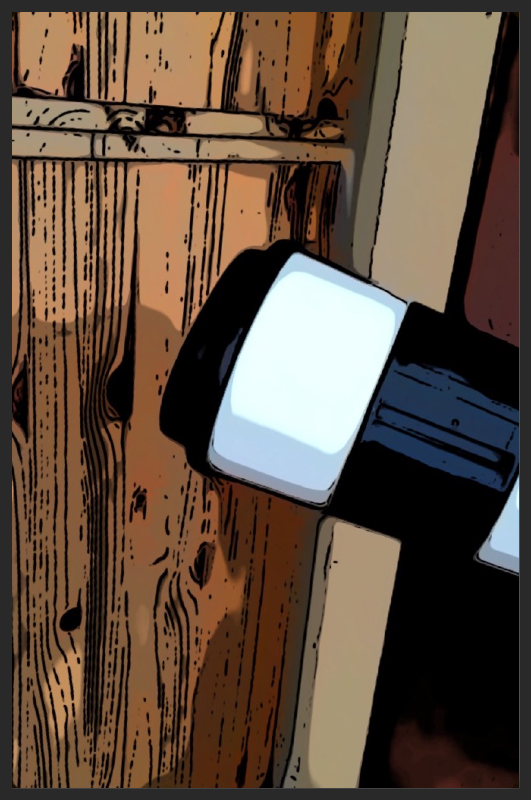The "Coffee on the Corner" Voice
A Counter-Voice to Depression
Joe was getting ready to watch a movie in his living room, and having prepared some evening coffee--he was one of those who could do that--sat down on the couch and set the coffee down on the coffee table (naturally). Since the table was scattered with magazines, he put the coffee right at the edge. A voice in him said, "Probably shouldn't put it there. Best to move the magazines and avoid a mess." The movie had started, he was munching a snack, and said to himself, "Meh, it will be fine. Too much of a hassle. It's fine." Then he moved to adjust on the couch, his foot hit the table, the stack of magazines slid surely to the side, and the coffee cup tipped slowly, almost gracefully, to empty it's contents onto the white rug.
The Nature of the "Coffee Voice"
Joe's calm, reasonable, non-insistent warning self is what my wife calls the "Coffee on the Corner" voice. It's not the voice that says, "What, are you stupid?! See, I TOLD you! Such an idiot!" (That's usually some-version-of-family voice.) Nor is it the, "See, I knew it would fail anyway. Things always go wrong. What's the point? Just goes to show." That's probably another-form-of-family-training, or a reaction to family.
The "Coffee Voice" (CV) is the one that tries to helpfully point out what's not in our best interest, but it is totally fine with us ignoring it, and once the coffee is wicking out across the previously white carpet, says, "Huh, OK. That happened," and then goes back to scanning mode, seeing if there's anything else for it to suggest to us. It doesn't really have an agenda other than to be helpful, and trusts us implicitly to, in time, understand that it's a good ally.

That said, the way we often hear the CV is as an imposition, or burden, and we reply to it with, "You're such a nag!" or, "Don't worry so much!" or, "Quit thinking nothing works out," or, "Mind your own business!"
Another dismissal of the CV is from the part of us that likes living on the edge. That part is also sitting in Joe as he puts down the cup on the edge of the table, and that part of Joe is saying, "Wow, this is great! The tension is awesome! What's going to happen? Are we going to beat the odds? If so, we're going to feel so special and exempt! Yeah, let's do it!" Usually quieter than that, but still, it's the gambler part of us, with the stakes being the consequence of the cup tumbling (buying a new rug, or at least hours of cleaning) bet against the thrill and payoff of pretending the laws of physics and probability do not apply to us.
(The third kind of response comes from the voice of depression, which will be elaborated below.)
The first response is about trying to justify not having to spend energy; it's the energy management voice but with a very narrow, present tense of cost-benefits assessment. "Sure it's unstable, but it's going to take energy and time to move the magazines to make is safer, and nothing has fallen yet, so let's just let it be." The second voice is about justifying our ego's desire to feel better/bigger/special/above the common rules, and it says, "Oh, c'mon! Don't be a sissy! You're such a negative nelly. Live a little!"
The CV is actually an advocate for a kind of simple appreciation of, and guidance by, the observable rules of reality. It is the part of us which is a simple monitor of what is happening, and what is likely to happen. Given the conditions at hand with Joe's coffee cup, it perks up very helpfully to give a cautionary input. But "helpful" from its perspective means, "What's in Joe's best interest given the amount of time and frustration it will take to clean up this mess if it all goes south."

Notice, though, that if the conditions were different, it would respond differently. Say, Joe has a really awful cup of truck stop coffee that he puts on a table edge sitting in the middle of the lawn. The CV is not going to be very loud because, one, losing the coffee is no big loss, and two, clean-up will cost neither time nor aggravation (assuming it's a weedy patch of lawn...). The CV is a very good and quick cruncher of numbers, coming up with a "least energy and distress" response to the current situation.
The Coffee Voice and Depression
So, then, why is the CV meaningful in relation to depression? If we contrast the CV with the voice of depression (let's say, the "DV"), we find that one is present centered and rational, and the other is past/future and essentially emotional. The DV looks at the reality at hand through a filter of negativity ("It's pointless and useless and meaningless") and hopelessness ("There's nothing I can do"). With Joe, if he were in a depressed state, it might sound like this:
CV: Joe, there's a good chance that cup will fall and you'll have to spend a lot of energy and time to clean it up, and be really frustrated.
DV: Joe, it's already there. It will be exhausting to change it once it's already like this. Just leave it be and watch your movie.
CV: Joe, you could take a little bit of energy now and move the cup, and that's worth it against the cost of the clean-up.
DV: Well, that's all nice if we actually had any energy. But since we don't, we can't spend any anyway.
CV: OK, then just pay attention to what happens and learn something for next time.
DV : No, just tune out, Joe. It's too tiring to pay attention...
But this paying attention to this voice of garden variety wisdom is actually a very important skill. Part of the skill is the noticing of the Coffee Voice as the Coffee Voice, but part is practicing the surrender to its greater wisdom. Which is very much a practice, requiring noticing, accepting, prioritizing this voice, and then acting on it.
So, as Joe develops this skill, the dialogue is going to sound something more like this:
[Joe sets the coffee on the edge of the magazine strewn table.]
CV: Joe, that's not a great place to put that. Why don't you straighten the magazines and move the coffee in?
DV: It's fine, good enough. Too tired to move it. Plus it's pointless anyway.
CV: Spend a bit of energy now to avoid a lot later.
Joe: [He hears both voices for what they are. He imagines the scenario if the coffee falls, and feels through the implications.] OK, I don't really want to, but you're right, it will cost more later.
CV: Plus costing in being one more bit of despair.
DV: Too tiring, pointless...
Joe: OK, I'll spend a minute and do the minimum to avoid the bad scenario.
Joe goes ahead and moves the magazines and coffee, and then because he's been working this terrain of depression for a while, knows to pay attention to what the results are when he follows the CV and not the DV. We need to build up experiences of the positive value of listening to the CV, and this requires acting on its suggestions, and then taking feedback from the results. Sure enough, Joe sees that his body relaxes, and the anxiety he hadn't realized was there goes away.

Even the depression voice fades a bit, as he confirms through his action that he can actually have influence over things in his life, and that not everything has to be a negative or confirm a dismal view of existence. Since those are the basic beliefs of depression, through even such a small action as moving a cup to a safer position takes a nick out of depression's tap root.